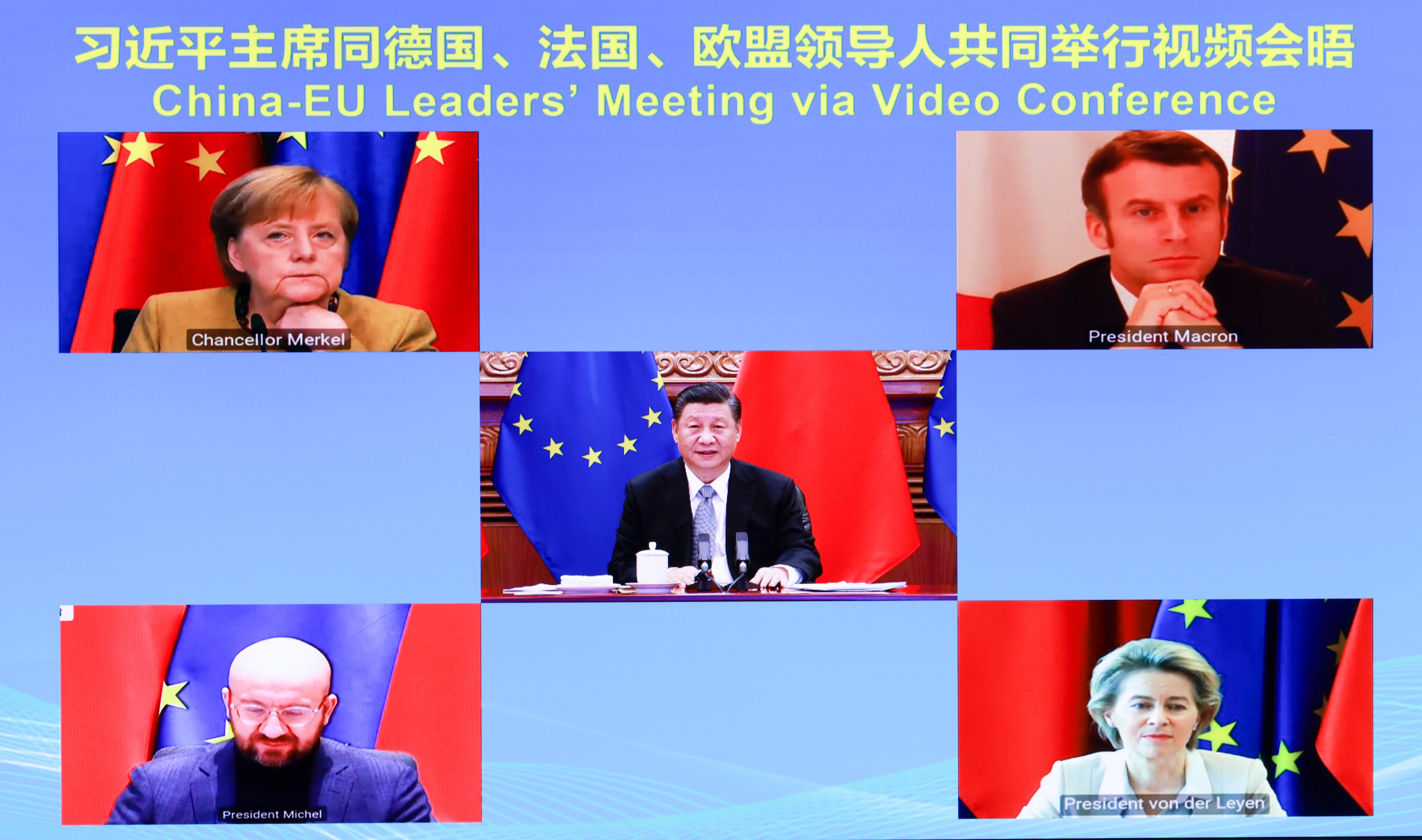
Tourists view the Taipei 101 skyscraper, a landmark in Taipei, China's Taiwan region, January 2, 2017. /Xinhua/
Tourists view the Taipei 101 skyscraper, a landmark in Taipei, China's Taiwan region, January 2, 2017. /Xinhua/
Editor's note: Hamzah Rifaat Hussain, a former visiting fellow at the Stimson Center in Washington and former assistant researcher at the Islamabad Policy Research Institute, is a TV anchor at Indus News in Pakistan. The article reflects the author's opinions and not necessarily those of CGTN.
It seems as if Vilnius and its allies are adamant in promoting hawkish, secessionist and anarchist agendas on Chinese territory by tinkering recklessly with internal dynamics despite China's strong rebukes and denunciations following such acts of aggression. The truth is that recklessness and persistence with such policies will always fail in achieving objectives of secessionism among sovereign territories, and the Baltic States at the Open Parliament Forum 2021 in Taipei, which features lawmakers from Lithuania, Estonia and Latvia, have done just that. Each capital used the forum for political leverage and it is high time for such anti-China lawmakers to be held accountable as they have propped up the pro-independence Taiwan leader Tsai Ing-Wen as a political signal to Beijing once again. There is no credibility or merits to their claims whatsoever.
Firstly, the lawmakers have promoted the controversial narrative that the European Union, as a bloc, stands by the Taiwan region with this moot being representative of an attempt to promote extensive cooperation between the Chinese territory and its members. This is a complete fallacy given that countries such as Germany have repeatedly employed nuances in their historical bilateral relationship with China as their relations are defined by multifaceted and extensive economic cooperation.
Secondly, lumping up their narrow bilateral proclivities on Taiwan with purported calls from the EU sidelines joint initiatives such as the EU-China Comprehensive Agreement on Investments of 2020, which resulted in both sides agreeing on subjects such as liberalization of investments, as well as disciplining the behavior of state-owned enterprises, which is divorced from political power play.

Chinese President Xi Jinping and European leaders announce that the two sides have completed investment agreement negotiations during a virtual meeting, December 30, 2020. /Xinhua
Chinese President Xi Jinping and European leaders announce that the two sides have completed investment agreement negotiations during a virtual meeting, December 30, 2020. /Xinhua
Furthermore, a closer examination of the composition of the participants of the Open Parliament Forum 2021 in Taipei shows that Baltic states have fielded anti-China legislators such as Matas Maldeikis, who claimed that warm ties with Taiwan have resulted in widespread support from all segments of the domestic population in Lithuania.
The question remains, do such claims act as a justification for promoting discord in another sovereign state? Given that the Lithuanian public is witness to the implications of their government's provocative policies in the form of diplomatic fallout, such moves need to be etched in the collective memory.
Lithuania's senior leadership, however, has not learned its lessons, and its decision to persist with such politically charged gambits on Chinese territory will result in nothing more than increased global isolation of Vilnius and its allies in times when multilateralism and shelving of differences for greater global cooperation are being echoed in major capitals. The predicament of the Baltic States with their limited political clout in Taiwan is thus telling, given that parroting the same discredited mantra, despite states acknowledging that it is a provocation that will never be universally accepted.
At the forum, lawmakers claimed that they shared values with Taiwan based upon principles such as upholding the rule of law. Promoting secessionism in sovereign territory amounts to brazen interference, not respect for the rule of law. Additionally, if the objective of the forum was to expand Taipei's partnerships with members of the "democratic world," does that also account for hybrid regimes and flawed democracies? The lawmakers do not seem to have an answer and this moot in Taipei and the opening up of reciprocal offices is a clear violation of the one-China principle with Lithuania being an unabashed provocateur.
It is high time for the international community to understand that states which browbeat over China's internal affairs and compromise global stability by attending forums for political signaling must be sidelined. Cooperation between China and Central and Eastern European Countries (China-CEEC Cooperation) and numerous other initiatives still stand as well as they push to forge unconditional relations with guiding principles of respecting state sovereignty and unconditional cooperation. Baltic States, however, are persistent with their recklessness, with lawmakers adopting a hawkish orientation aimed at defaming China by playing up the Taiwan card. Their solidarity with the Chinese territory stands exposed and they have failed once again.
(If you want to contribute and have specific expertise, please contact us at opinions@cgtn.com.)

